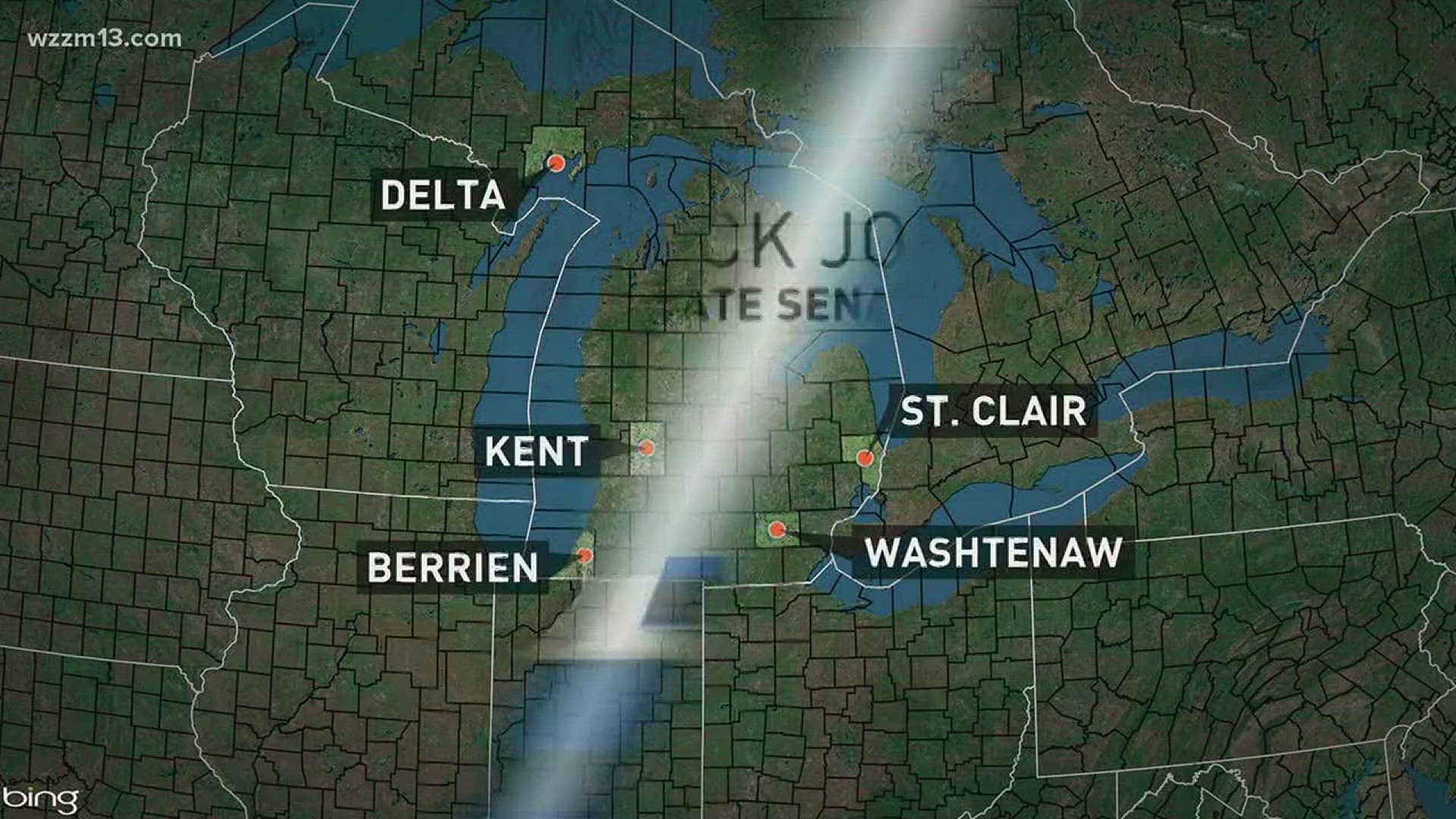Eight police officers in Kent County will soon begin testing motorists they suspect are driving under the influence of drugs.
It’s part of a one-year pilot program designed to reduce the number of accidents involving motorists driving under the influence of controlled substances, such as marijuana.
“This is when the officer stops you for erratic driving and they can tell you’re high on something,’’ state Sen. Rick Jones said. “It’s a tool to help them make a decision.’’
The Preliminary Oral Fluid Analysis program was signed into law last year by Gov. Rick Snyder. It allows specially trained officers to give saliva tests to drivers suspected of being under the influence of drugs. The pilot program was developed by Michigan State Police, but will involve officers from numerous departments in five specific counties. It gets underway Wednesday, Nov. 8.
“Roadside drug testing will detect whether somebody is high on marijuana, cocaine, heroin, methamphetamine – illegal drugs,’’ said Jones, R-Grand Ledge, who sponsored the legislation. “It’s very important that the officer, when he makes a stop on an erratic driver, has this tool.’’
Jones, a former Eaton County sheriff, said roadside drug tests have the same value as breath tests used in cases of suspected drunk driving.
“There has not been a good, effective roadside test for drugs until now,’’ Jones said. “Michigan law states you may not drive under the influence of drugs; it’s just like drunk driving.’’
There are currently 116 officers certified as Drug Recognition Experts in Michigan, said Michigan State Police Lt. Jim Flegel. Of those, 26 are participating in the pilot program in Berrien, Delta, Kent, St. Clair and Washtenaw counties, he said.
Kent County's staffing comes from the Michigan State Police post in Rockford, the Grand Rapids Police Department and the Kent County Sheriff’s Department, Flegel said.
“It is a pretty extensive training program they had to go through,’’ he said.
Jones says the program is warranted due to a steady increase in fatal accidents involving motorists impaired by drugs. Michigan logged 236 drug-involved traffic fatalities last year, a 32 percent increase from 2015.
“There’s a huge concern in Michigan,’’ Jones said. “While drunk driving seems to be going down, drugged driving is on the upswing. It’s very important to give the officer every tool possible to take drivers off the road if they are high.’’
If a motorist refuses the roadside drug test, they can be ticketed, Jones said, noting that it would be a civil infraction.
“This test will not be used in court; it's a tool for the officer to make a decision on whether or not to make an arrest,’’ Jones said. “If you are arrested, you will be offered a blood test. And that will be the determining factor in court.’’
Saliva will be collected using a small sponge. It only takes a few minutes for the sample to be processed, Jones said.
“It’s logical, after all my years on the road as a police officer, marijuana will come up the most,’’ Jones said. “But there will also be some people on opioids and meth.’’
►Make it easy to keep up to date with more stories like this. Download the WZZM 13 app now.
Have a news tip? Email news@wzzm13.com, visit our Facebook page or Twitter.

